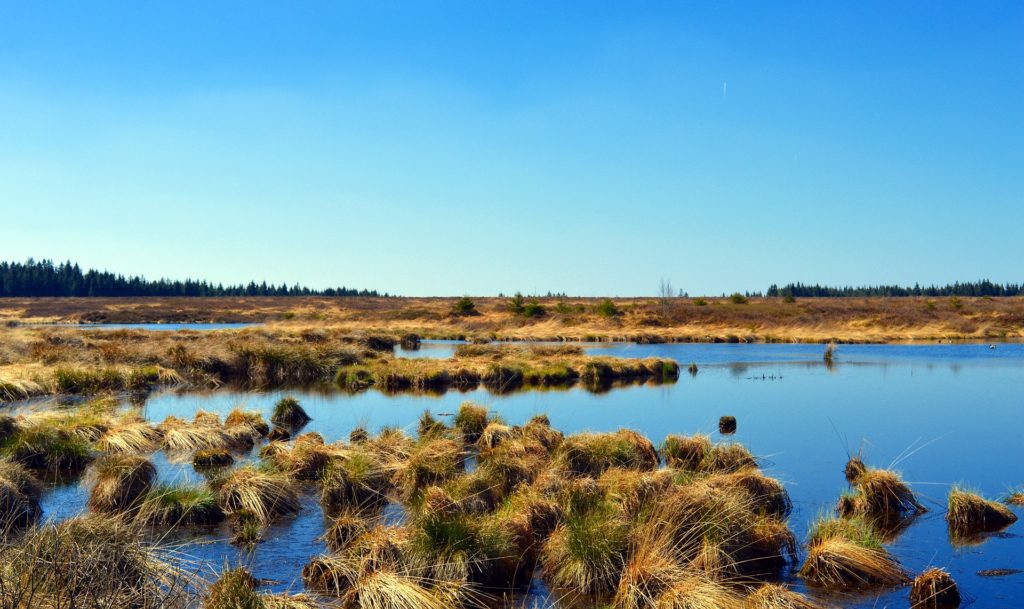
Pharaoh, finally let the Israelites leave Egypt. However, when he sensed the voluntary return of the Israelites to Egypt after holding a three-day celebration of religious sacrifice in the desert (Ex. 3:18) would be unlikely, he changed his mind. Almost immediately Pharaoh ordered his army to set off to pursue the fleeing Israelites on chariots in order to bring them back. The fleeing Israelites had no strength or enough armed devices to defend themselves against the fierce Egyptian army of Pharaoh. Either they would have been killed by the Egyptian army or returned to slavery again.
The Egyptian army caught up to them at a shallow lake or a sea (Sea of Reeds) or a marsh. And the people of Israel stood at the edge of it. The Israelites were trapped in between water that was in front of them and the fierce Egyptian army on chariots behind them. Nowhere in Hebrew Scriptures we do not find the mentioning of the Red Sea. The correct translation for the Red Sea in Hebrew is “Yam Suf,” which means the “Sea of Reeds” or “Reed Sea” or even “Papyrus Lake.” (Ex 13:18; 15:4; 22) The word, Yamm in Biblical Hebrew described any ‘inland body of water’ or ‘sea.’ The word, Suf means “reed” or “papyrus.” Both these terms “Yam Suf” refer to the reeds that grow around the body of water. This inland body of water was flooded periodically by an eastward-flowing arm of the Nile River.
Hence, there was no way out and they were almost trapped. The Israelites who were in panic and great fear, cried to Moses saying, “for it would have been better for us to serve the Egyptians than to die in the wilderness. ….What have you done taking us out of Egypt?” But Moses, who believed that God was fighting for them, told them to stand firm for God would help them (Ex. 14:11-14). It is good to notice here what God told Moses even though there seemed to be ‘no exit.’ God’s divine imperative was, “Tell the people of Israel to go forward!” (Ex. 14:15)
God did not say to Moses that He would handle it from there. Rather, God told Moses tell the people of Israel to “get moving!” In a way, what God intended was that they would not be saved without their participation in His plan. They had to be moved according to the command of God to be saved. And yet, get moving where? There was no apparent way out for them since they were trapped in the middle of the Egyptian army and the water of Yam Suf.
It appears that God rescued His people through a series of divinely coordinated events in nature. God made it happen for the marsh of Yam Suf to be parted or divided through an unusually lower level of water. God’s act of dividing the waters was to provide safe passage for the Israelites to escape from the Egyptian army. Hence, the Israelites passed through the Sea of Reeds (Yam Suf ) when the water was at unusually low ebb. After passing through, they hid all night behind a bank of fog (Ex 14:19-0). That way God allowed the Israelites to escape across the waters unharmed.
Pharaoh’s chariots spent the night at the bank of the Sea of Reeds waiting to continue their pursuit in the following morning. At daybreak while it was raining heavily with thundering and lightening, Pharaoh’s army followed the Israelites by going through the parted Sea of Reeds. However, God clogged the wheels of Egyptian chariots by making it hard for them to drive (Ex 14:24-25). As the waters flooded again, their pursuing of the Israelites began to perish. The Israelites saw the Egyptian army lying dead.
This story of the escape from Egypt is commemorated by Jewish people every year during Passover celebration. In this way they relive their freedom from slavery and it was continually passed on to every generation. This Exodus is one of the major events not only to the Old Testament, but also to the New Testament as well. It calls us to recall the first act of God at the beginning of creation that was to divide the waters of chaos in order to create the world. In the act of dividing of the Sea of Reeds, God wanted to create His own people who are free.
— Fr. Niranjan Rodrigo, Ph.D.

You must be logged in to post a comment.